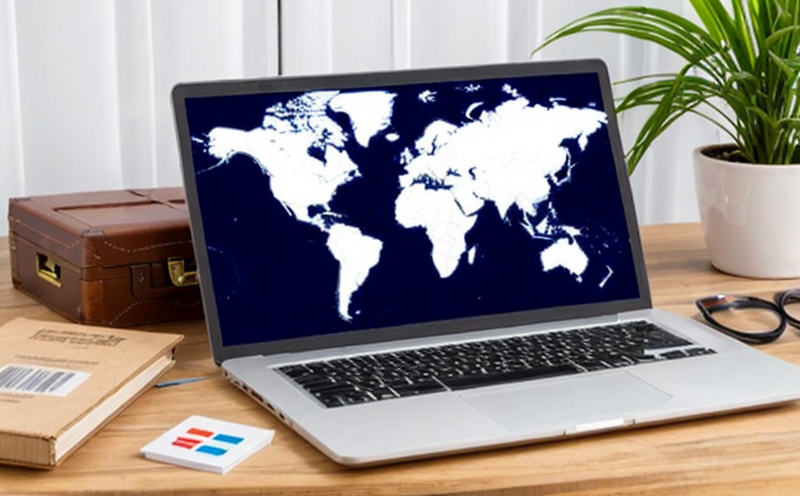ISO 21001 Educational Organization Certification Testing in Trade Facilitation
The ISO/IEC 21001 standard is a globally recognized framework designed to ensure that educational organizations deliver on their commitments and meet the expectations of all stakeholders. This certification testing service specifically targets trade facilitation, ensuring compliance with international standards for quality management systems (QMS) in educational institutions.
Trade facilitation involves streamlining processes to reduce barriers to international trade, improving efficiency and lowering costs. Educational organizations play a critical role by preparing students for the global job market, equipping them with skills necessary for success in an interconnected world. ISO 21001 certification helps these organizations meet both internal and external expectations, ensuring they are aligned with best practices.
The testing process involves rigorous evaluation of educational processes, policies, and procedures to ensure they align with the requirements specified by ISO/IEC 21001. This includes assessing the organization's commitment to continuous improvement, stakeholder engagement, and risk management. The certification not only enhances reputation but also provides a competitive edge in an increasingly globalized education sector.
Our team of experts ensures that each step of the certification process adheres strictly to ISO/IEC 21001 guidelines. We provide detailed reports outlining areas of strength and opportunities for improvement, helping organizations optimize their operations. By focusing on trade facilitation, we help educational institutions navigate complex regulatory landscapes, ensuring they are prepared to meet international standards.
Through this service, we support compliance with international standards such as ISO/IEC 21001, which emphasize the importance of a quality management system that supports continuous improvement and stakeholder engagement. This approach is particularly beneficial for educational organizations seeking to enhance their reputation and effectiveness in preparing students for global challenges.
Our comprehensive testing service covers all aspects of ISO/IEC 21001 certification relevant to trade facilitation, ensuring that every component of the organization's QMS is thoroughly evaluated. This includes assessing how well the organization addresses risks and opportunities, engages stakeholders, and continuously improves its processes. By focusing on these key areas, we help educational institutions not only meet but exceed international standards.
Our team works closely with clients to ensure a smooth certification process. We provide detailed guidance throughout each stage, from initial assessment through final audit. This ensures that organizations are well-prepared and fully understand the requirements of ISO/IEC 21001 in relation to trade facilitation. Our expertise in this area allows us to offer tailored solutions that meet the unique needs of educational institutions.
By partnering with us, educational organizations can benefit from a robust certification process that enhances their reputation and prepares them for international challenges. This service not only ensures compliance with ISO/IEC 21001 but also helps institutions optimize their operations, making them more efficient and effective in facilitating trade.
Applied Standards
| Standard | Description |
|---|---|
| ISO/IEC 21001 | A quality management standard specifically for educational organizations. |
| ISO/IEC 31010:2009 | Risk Management Techniques. |
| ISO/IEC 27001 | Information Security Management System. |
| ISO/IEC 45001 | Occupational Health and Safety Management System. |
The ISO/IEC 21001 standard is central to our testing service, providing a framework for educational organizations to ensure they meet the expectations of all stakeholders. By adhering to this standard, institutions can enhance their reputation and effectiveness in preparing students for global challenges. The application of other standards such as ISO/IEC 31010, ISO/IEC 27001, and ISO/IEC 45001 further supports the comprehensive approach taken by our service.
Quality and Reliability Assurance
- Comprehensive initial assessment to identify strengths and weaknesses.
- Rigorous evaluation of all components of the QMS relevant to trade facilitation.
- Detailed reporting with actionable recommendations for continuous improvement.
- Certification support throughout the entire process, from audit preparation to final certification.
Our commitment to quality and reliability is reflected in our approach to ensuring compliance with ISO/IEC 21001. By providing a structured and thorough evaluation process, we help educational organizations meet all relevant standards while also addressing specific needs related to trade facilitation. This ensures that the certification not only meets international requirements but also supports the organization's goals for continuous improvement.
Use Cases and Application Examples
The ISO/IEC 21001 standard is widely recognized in education sectors around the world, and its application to trade facilitation offers significant benefits. Here are some real-world examples of how this certification can enhance educational institutions:
- Improved Student Outcomes: By ensuring that teaching methods and curriculum align with international standards, ISO/IEC 21001 helps prepare students for the global job market.
- Increased Reputation: Organizations that achieve this certification are recognized as leaders in quality management, enhancing their reputation among stakeholders.
- Better Resource Allocation: The standard provides a framework for efficient resource allocation, ensuring that funds and other resources are used effectively to support trade facilitation initiatives.
- Enhanced Stakeholder Engagement: ISO/IEC 21001 emphasizes the importance of stakeholder engagement, which is crucial in educational organizations where students, staff, and external partners all play key roles.
In conclusion, ISO/IEC 21001 certification testing in trade facilitation offers a comprehensive approach to ensuring quality management systems are aligned with international standards. This service not only enhances reputation but also supports the continuous improvement of educational institutions, making them more effective and efficient in facilitating global trade.





